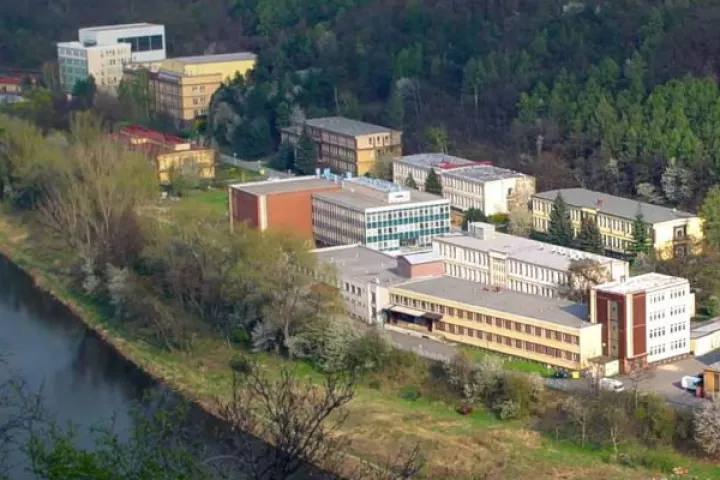NUCLEAR PHYSICS INSTITUTE OF THE CAS
Nuclear Physics Institute of the CAS performs research in experimental and theoretical nuclear physics. Experimental studies are focused on properties of nuclear matter in collisions of heavy ions at middle and high energies, on nuclear reactions relevant for astrophysics or nuclear energy, on beta decay including neutrino rest mass question. Theory of the atomic nucleus deals with nuclear structure, hypernuclei, interactions of the elementary particles with atomic nuclei, and mesons’ degrees of freedom in nuclei. Selected problems of theoretical subnuclear and mathematical physics are studied as well.
Neutron diffraction is applied in solid matter physics and in material research. A wide complex of nuclear analytical methods with use of both charged particle beams neutrons is employed in an interdisciplinary research in collaboration with external specialists in chemistry, ecology, medicine, archeology etc.
Dosimetry of ionizing radiation is focused on measurement of ecologic and professional radiation burden, metrology, biophysical aspects like DNA radiation damage. Research and development of radiopharmaceuticals is performed, particularly of novel positron emitters and theranostic radionuclides. The workplace operates a cell culture laboratory. Physics of prospective methods in nuclear energetics is cultivated, e.g. accelerator-driven transmutations of the nuclear waste.
NPI serves in the EATRIS infrastructure as a medical radionuclides (e.g. 64Cu, 89Zr) and tracers supplier. Design and development of the cyclotron target technologies, automation and separation methods is inevitable for such purposes.
NPI has a permission to handle open radionuclide emitters. It operates two cyclotrons: isochronous U-120M providing beams of four particles (protons, deuterons, 3He and α particles), and compact TR-24 enabling to bombard targets with proton beam of 24 MeV energy and 300 μA beam current. These cyclotrons are combined with radiochemical laboratories for the irradiated targets processing, radionuclides separation and analysis, labelled compounds preparing, purification and characterization. NPI employs currently ca 120 researchers (Ph.D.) and further ca 80 university educated workers (MSc. level), 43 % employees is younger than 40 years. NPI is further equipped with several unique technologies related to its participation in EATRIS:
- cyclotron targets of our own design
- automated technologies for the irradiated targets processing
- analytical methods (gamma-ray spectrometers, ionizing chambers, HPLC-MS with radiodetection etc.)
- cell culture laboratory
NPI has been participating in many international projects e.g. CHANDA (EU FP7) for access to the large European facilities dedicated to the nuclear data research, ESS representing Czech participation in the formation of the European neutron spallation source in Lund, SINE2020 (Horizont 2020) focused on top research and experimental equipment in the field of neutron employment in the material research, KATRIN for determination of the neutrino rest mass etc. NPI participates in the experiments in the large nuclear research laboratories all over the world (CERN, BNL, GSI, GANIL, JINR).
